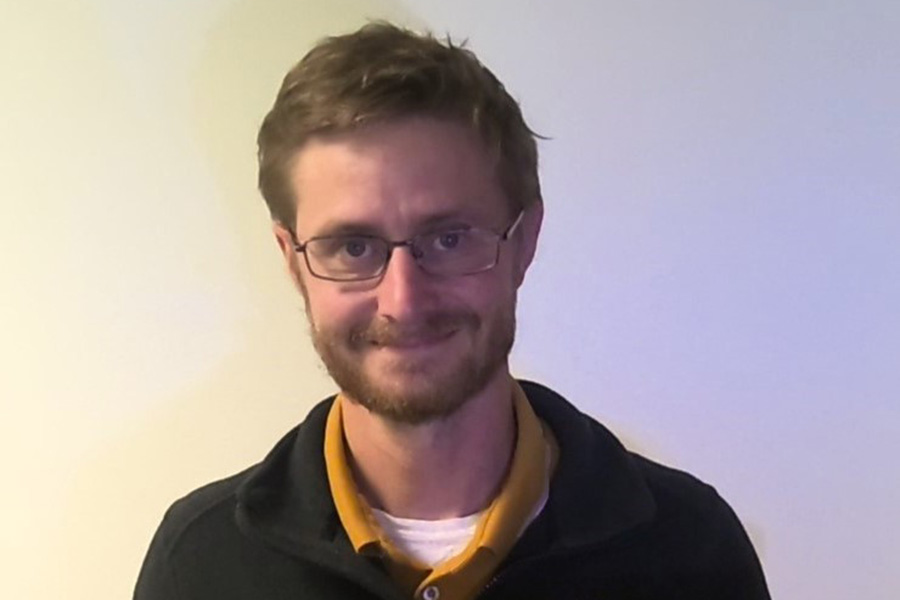Mathematics Postdoctoral Associate Wins the 2023 George Pólya Award
Will Erickson, Ph.D. Baylor Mathematics Postdoctoral Associate won the 2023 George Pólya Award, awarded by the Mathematical Association of America (MAA). The George Pólya Award, established in 1976, is given for articles of expository excellence published in The College Mathematics Journal. It is named for George Pólya, a professor at Stanford University, who was a renowned mathematician, teacher, and author. Up to two awards can be given each year.
In “Haste Makes Waste: An Optimization Problem,” William Erickson introduces his readers to fictional heroes Ivan and Olga who collaboratively tackle one of the most valuable optimization problems of the common era: How do we minimize our travel time during the morning commute to work? Using some clever graphical analyses of inverse functions and accumulation functions, this article is packed with careful thought about elementary calculus.
Both students and instructors will find Erickson’s article a joy to read. Not only is it fun and very accessible to undergraduate students, but it is also surprisingly challenging as well. The article incorporates elements of mathematical modeling and demonstrates careful thought about elementary calculus, all the while employing a nice dose of geometric and covariational reasoning. It is a great example of real-world problem solving, challenging the reader with graphical interpretations of the model and providing thoughtful uses of inverse functions and the interpretation of definite integrals. “Haste Makes Waste” provides a great starting point to involve undergraduates in mathematical exploration and discovery.
Erickson said, “I am deeply honored to receive this award, especially because of my admiration for its namesake, the great George Pólya. I had hoped that my article would offer students yet another example of Pólya’s central message: “Your problem may be modest, but if it challenges your curiosity and brings into play your inventive faculties, and if you solve it by your own means, you may experience the tension and enjoy the triumph of discovery.” This little traffic problem did in fact occur to me while driving through morning rush hour on the way to calculus class; at first I intended it as a five-minute warmup for my students, but soon realized it was more involved than expected. The solving and the writing were pure fun (thanks in part to the real-life Olga, whose personality heavily inspired the heroine of the article), and I wish that same joy to teachers and students thinking about the problem. Sincerely grateful to the MAA and the College Mathematics Journal for this honor, I would also like to thank my advisor, Jeb Willenbring, who encouraged these side projects during graduate school, along with the anonymous referee for the thoughtful suggestions on the first draft.
Congratulations Will!
